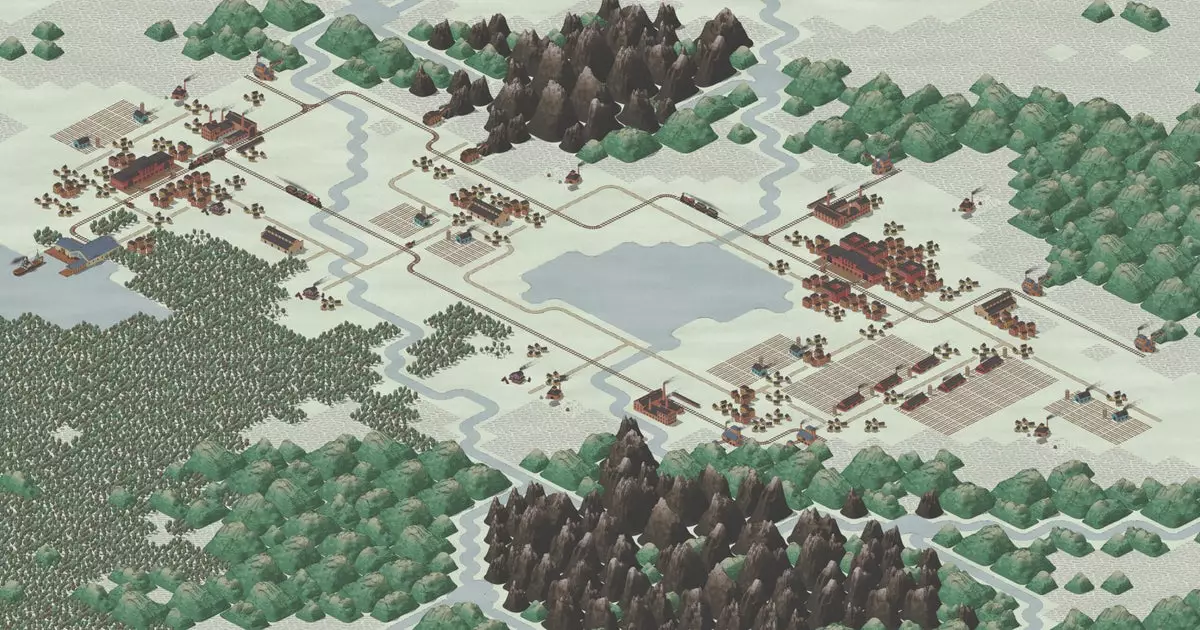The gaming landscape is rich and varied, with numerous genres captivating players around the globe. Among them, city-building games hold a special allure, combining elements of strategy, creativity, and management. One indie title that has garnered attention recently is *Times of Progress*, a game steeped in the themes and aesthetics of the Industrial Revolution. Inspired by the recommendations of influential people in the gaming community, this article sets out to explore the integral mechanics, visuals, and historical implications that make *Times of Progress* a noteworthy addition to the genre.
Set during the dynamic era of the Industrial Revolution, *Times of Progress* invites players to manage and expand a burgeoning city amidst rapid technological advancements. The gameplay is centered around the evolution of technologies that were pivotal during this transformative period. Players cannot simply research innovations at will; instead, technologies unlock along a historical timeline, reflecting the era’s actual progression. This feature not only grounds the gameplay in educational relevance but also introduces a layer of strategy, as players must meet specific goals to expedite technological advancement, thus enriching the overall gaming experience.
Players will find that the game lacks a military aspect, diverging from many city-builders that often integrate combat or territorial conquest. Instead, the focus is primarily on trade, allowing players to forge commercial relationships with AI-governed cities across the game map. This shift towards a mercantile approach adds complexity to the economic management aspect, as players must balance resource allocation, city development, and external trade agreements.
One of the standout features of *Times of Progress* is its captivating visual design. Set in a procedurally generated isometric environment, the game presents a charming and visually coherent world. The aesthetics lean towards minimalism, yet are accentuated by engaging animations, such as swirling smoke rising from chimneys and dynamic changes in building structures. This blend of simplicity and detail creates an immersive experience that draws players into the intricacies of their urban development endeavors.
The color palette greatly enhances this immersive atmosphere, presenting clean shades of earth, brick, and green that evoke the spirit of the Industrial Revolution without overwhelming players. As cities grow and evolve, the game captures the organic development of urban environments, beckoning players to witness the complexities of their decisions manifest in real-time.
A remarkable aspect of *Times of Progress* is its portrayal of labor dynamics. Workers, driven by the necessity of fair compensation, can strike if they are not adequately paid over time. This mechanic introduces a realistic and critical aspect of urban management that goes beyond mere economic figures. Players face the moral dilemma of meeting workers’ demands versus implementing more oppressive measures to restore order.
The inclusion of unionization as a game feature adds depth to player interactions, requiring careful consideration of how worker satisfaction impacts productivity. University-educated citizens may strike more readily, prompting players to strategize around not just resource management but social satisfaction—a refreshing challenge that mirrors real-world themes of labor rights and social justice.
As an indie title developed by the solo game designer behind Pressing Thumbs Games, *Times of Progress* embodies the increasingly important contributions of independent developers to the gaming spectrum. The developer’s strategic use of the Rust programming language and Bevy Engine underpins the game’s robust performance and innovative design choices.
*Times of Progress* presents a nuanced take on city-building games, intertwining historical context with engaging gameplay mechanics that consider economic, social, and technological elements. While players are tasked with building their ideal cities, they’re also invited to reflect on the broader implications of progress and development within their created worlds—a thoughtful approach rarely seen in the genre. As the game gains traction and recognition, it certainly stands as an articulate entry into a genre ripe for innovation and diversity.


Leave a Reply